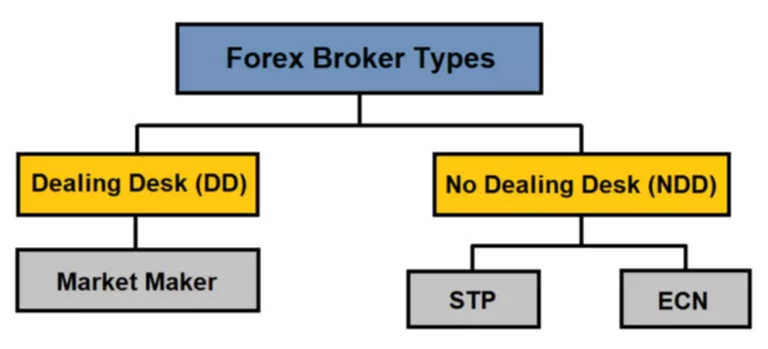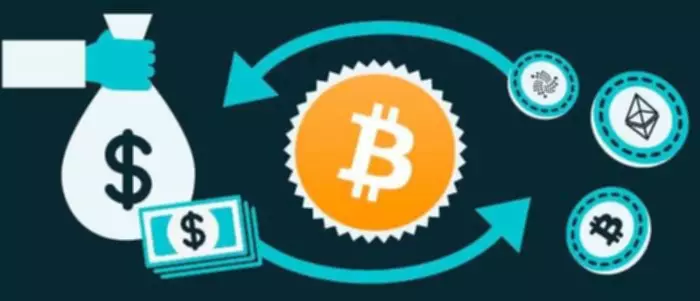ไม่มีสินค้าในตะกร้า
FinTech
Crypto Market Trends In February: Institutional Progress, Ai, And Defi
In an ecosystem where milliseconds can imply hundreds of thousands, the embrace of these technologies by institutional traders isn’t only preferable but crucial. Mastering the art of prediction within the face of market volatility is an essential talent for institutional traders. By closely analyzing financial indicators and geopolitical occasions, these merchants can forecast market movements and regulate their strategies accordingly.
Who Are Institutional Traders?
Institutional buying and selling performs a pivotal position in enhancing market liquidity and depth. Liquidity refers again to the ability to purchase or sell an asset with out causing a major price movement. Institutional investors, with their vast capital and willingness to take on large positions, provide the liquidity that helps markets function easily. The larger the institutional fund, the upper the market cap institutional merchants are inclined to personal.
Retail buyers typically buy and sell shares in round lots of 100 shares or more; institutional investors are identified to buy and promote in block trades of 10,000 shares or extra. As A Outcome Of of the larger commerce volumes and sizes, institutional investors typically keep away from buying shares of smaller firms for 2 causes. First, the act of purchasing for or promoting giant blocks of a small, thinly-traded stock can create sudden supply and demand imbalances that transfer share costs greater and lower. The funding in swaps, forwards etc. provides an edge to the institutional buyers. Such unique devices aren’t out there to retail traders normally since institutional buyers have the large funds wanted for such investments. Institutional buyers often take care of Smart contract giant amounts of capital, which may influence the liquidity of the securities they commerce.
Their trades help to reflect the true value of securities, facilitating extra accurate pricing and higher decision-making for all market individuals. High-frequency buying and selling (HFT) is a subset of algorithmic trading that includes executing a lot of orders at extremely high speeds. Institutional investing makes up over 80% of the whole stock market transactions. To circumvent this, they trade by way of dark swimming pools, have interaction in high-frequency buying and selling, and sometimes act primarily based on insider data. Though all of the relevant data yow will discover is on the market on the EDGAR database, the repository is exhaustive and infrequently troublesome to navigate. Due To This Fact, many buyers resolve to use on-line monitoring companies, brokerage platforms, and different forms of trackers to get a filtered selection of the related trades.

They tend to employ highly skilled and experienced monetary experts and analytical tools which would possibly be generally out of attain to regular individuals. Institutional buying and selling is practised by a authorized entity that accumulates funds from several totally different traders to put money into totally different financial instruments corresponding to stocks, bonds, real property etc. In quick, institutional buying and selling is completed by large organizations on behalf of their purchasers. Quantitative methods supply unparalleled velocity and precision, allowing institutions to react to real-time market adjustments. Nonetheless, in addition they involve high technological investments and complex model improvement, making them inaccessible to most retail traders.
- A profession path in institutional buying and selling calls for complementary skilled expertise which institutions must purchase.
- After all, quite a few millionaires earned their wealth by picking the right stock!
- They—the institutions—take charge of economic management for organisations along with governments along with dealing with the wealth of high-net-worth people.
- Large trades or the unwinding of positions by institutions can result in sudden and important price swings, exacerbating market fluctuations.
Disadvantages Of Institutional Buying And Selling
Embarking on an institutional dealer profession entails dedication to continual studying and an ever-evolving understanding of world markets. Constructing a profession on this difficult field requires a mix of formal schooling, sensible market experience, and a performance-driven mindset. Institutional trading can have a big impact on the worth discovery course of. Massive trades, especially those involving heavily traded shares or property, can result in sharp price actions, each up and down. Not all institutional traders are public companies, but most are and thus need to file their financial reviews with the SEC regularly.
Though no investment result’s assured, managing risk is important for successful investing. Institutional traders know this best, in order that they use a plethora of resources to get as close to the proper prediction as potential. In Addition To SPY, this funding administration subsidiary provides varied different securities, including indices and equity. State Avenue, or State Avenue International Advisors, to be precise, is the last member of the Big Three in institutional investing, with $4.four trillion in AuM (as of June 2024). It has made a status for its “spider” (SPDR) ETFs, which notably includes SPDR S&P 500 ETF Belief (SPY), one of many largest and most popular ETFs on the earth. Plus, the institutional dealer can make the trading practices extra convenient and sooner with the help of data in algorithmic and quantitative strategies for trading.
They manage this by having a gaggle of close to a hundred scientists and math wizards that have a look at data-driven and quantified strategies all day long. It’s a sport of chances and statistics (and managing risk when issues go wrong). Institutional buyers are topic to a extensive array of regulations, such because the Volcker Rule, MiFID II in Europe, and Dodd-Frank in the united states These rules impression how they’ll trade, the forms of instruments they can use, and the transparency of their activities. Compliance with these laws is a crucial aspect of any institutional buying and selling strategy.
1 Market Liquidity And Depth

We want the on a daily basis person to get the kind of training in the stock market we might have needed after we began out. We additionally supply real-time inventory alerts for those who wish to follow our choices trades. You have the choice to trade stocks as a substitute of going the choices buying and selling route if you wish. Our chat rooms will offer you a possibility to discover methods to trade stocks, choices, and futures. You’ll see how other members are doing it, share charts, share concepts and acquire data.

Their investment selections determine market liquidity, rates of interest, and even inflation developments. When discussing institutional investing, it’s important to distinguish between authorized institutional buying and selling and insider trading. It’s necessary to deal with day trading shares, options, futures, and swing trading like you would with getting knowledgeable diploma, a new trade, or starting any new profession. Sure, we work onerous daily to show day trading https://www.xcritical.com/, swing trading, choices futures, scalping, and all that fun buying and selling stuff. However we also like to teach you what’s beneath the Basis of the stock market.
Institutional investors are usually not investing their very own cash, but making funding choices on behalf of purchasers, shareholders, or customers. In addition, institutional buyers sometimes avoid buying a high proportion of firm ownership as a end result of performing such an act may violate securities laws. For instance, mutual funds, closed-end funds, and exchange-traded funds (ETFs) which are registered as diversified funds are restricted as to the proportion of a company’s voting securities that the funds can personal. Without a doubt, institutional investing is a dominant drive within the stock market. The ensuing conclusions allow them to predict market shifts and conduct decision-based trades on potential alternatives before the investing public.
Algorithms empowers high-frequency buying and selling, artificial intelligence informs funding selections, and all are underpinned by robust cybersecurity measures. The repercussions of these advancements are multidimensional; not only do they redefine the method and capabilities of skilled merchants, however they also culminate in a substantial world market impression. Such developments promise to steepen the trajectory in path of hft high frequency trading an period the place efficiency and precision are the linchpins of monetary mastery. The evolution of the institutional trading paradigm is inexorably linked to the progressive march of know-how.
This data-driven method fuels their investment selections, permitting them to anticipate market shifts and identify undervalued alternatives earlier than the gang catches on. Understanding what’s institutional buying and selling helps traders grasp its significance in world finance. The market requires institutional trading and retail buying and selling techniques to function because they preserve stability through completely different investment strategies. These institutions get pleasure from privileges that retail traders don’t, including entry to non-public equity, pre-market trades, and bulk discounts on transaction fees. The collective power of retail dealer communities, fuelled by social media discussions, can influence asset prices.
